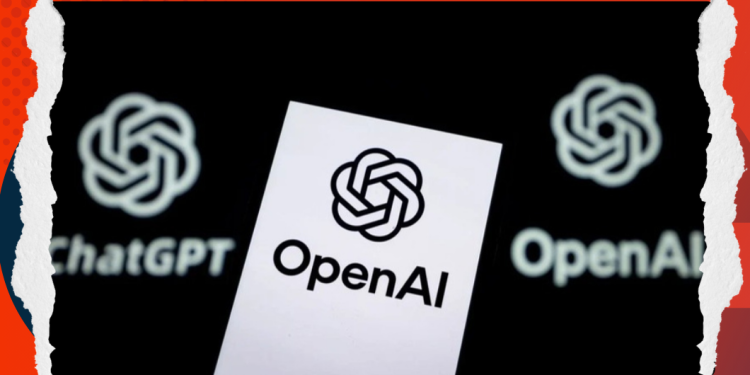OpenAI has launched data residency services for business customers in the United Arab Emirates, which allows companies to store sensitive information within the country while using ChatGPT Enterprise and API services. The move addresses the biggest barrier preventing UAE enterprises from adopting AI at scale.
The ChatGPT creator is targeting over 1 million global business customers who can now choose where their data lives. UAE organizations using ChatGPT Enterprise, ChatGPT Edu, or OpenAI’s API Platform can store customer content locally in Microsoft Azure data centres in the Emirates.
UAE Leads Global AI Adoption Race
Recent data shows UAE professionals use AI tools at unprecedented rates, with 59.4% of working-age residents using AI daily, according to Microsoft’s latest report. This puts the UAE ahead of every other country globally for AI workplace adoption.
Gulf News reports that OpenAI has tripled its user base in the UAE over the past year. Approximately 60% of users aged 18-24 and half of those aged 25-34 use ChatGPT weekly, demonstrating strong consumer uptake across younger demographics.
The UAE’s AI market reached $3.47 billion in 2023, and analysts project 43.9% annual growth through 2030, potentially hitting $46.33 billion by the decade’s end.
Breaking Down Compliance Barriers for Enterprises
Before this announcement, security and compliance teams frequently rejected AI tools not because of model quality, but because data storage locations conflicted with local regulations. UAE federal rules, along with sector-specific mandates for banking and healthcare, created significant friction.
“Enterprises can move from small pilots to full deployments without violating their jurisdiction’s rules on where data should live,” explains Akshat Tyagi, associate practice leader at HFS Research. Development teams previously had to strip or anonymize data to stay compliant, while procurement teams faced lengthy approval processes.
The data residency option solves these problems for banks, insurance companies, hospitals, and public-sector organizations that handle regulated information. Companies including G42, Mubadala, Abu Dhabi Investment Council, Aldar Properties, and fintech company Tabby are already integrating OpenAI models into their workflows.
Storage vs Processing: Understanding the Technical Details
OpenAI’s solution covers data storage but includes important limitations. While customer content is stored within UAE borders, inference processing still occurs on US-based infrastructure when users interact with AI models.
“Enterprises will have to look through two different lenses – where their data is kept, and where their data is actually processed,” Tyagi notes. Computerworld reports that the moment users interact with models, prompts are temporarily processed on US infrastructure before results return.
This split approach means some government agencies and defense organizations might remain cautious. However, Tyagi estimates the storage-focused solution addresses “70-80% of the compliance friction that regulated enterprises were dealing with.”
Enterprise Customers Get Advanced Controls
OpenAI offers different residency options depending on the service tier. ChatGPT Enterprise and Edu customers can create new workspaces with data residency, keeping conversations, uploaded files, custom GPTs, and image generation artifacts within selected regions.
API Platform customers approved for advanced data controls can enable regional residency by creating new projects and selecting their preferred region. These requests are handled in-region, and OpenAI confirms model requests and responses aren’t stored on their servers.
The company emphasizes that enterprise and API customer data isn’t used to train OpenAI models by default. Additional security features include AES-256 encryption for data at rest, TLS 1.2+ for data in transit, and configurable retention policies.
Supporting UAE Vision 2031 Goals
The expansion aligns with UAE Vision 2031, which calls for AI integration across the national economy. Farouk El Hamzawi, OpenAI’s Head of Enterprise for MENA, says the company is “proud to expand our data-residency options to support this ambition.”
Educational institutions, including Khalifa University, Mohamed bin Zayed University of Artificial Intelligence (MBZUAI), NYU Abu Dhabi, and UAE University, are adopting OpenAI technologies to enhance research and learning capabilities.
Building on Stargate UAE Infrastructure
The data residency announcement follows OpenAI’s earlier reveal of Stargate UAE, a massive AI infrastructure project. The 1-gigawatt data center cluster, developed with partners including G42, Oracle, NVIDIA, Cisco, and SoftBank, represents the first international deployment of the $500 billion Stargate Project.
The first 200-megawatt cluster is expected to become operational in Q1 2026, establishing the UAE as a strategic hub for AI development and services across the region.
Global Expansion Strategy Takes Shape
OpenAI now offers data residency across 10 regions: Europe, United Kingdom, United States, Canada, Japan, South Korea, Singapore, India, Australia, and the UAE. The company plans additional regional expansions soon.
This puts OpenAI in direct competition with hyperscalers like AWS, Microsoft Azure, and Google Cloud, which already provide in-region storage and sovereign cloud options. While OpenAI can’t match their full infrastructure capabilities yet, data residency is the first piece of that competitive stack.
The expansion could help OpenAI capture market share from enterprises that previously chose competing AI services based purely on data location requirements rather than model performance.














